Prof. Xianbao Wang’s Group
1. About us
The principal research interests of Prof. Xianbao Wang’s group focus on addressing the major global challenges of clean and sustainable energy and nanodevices. To successfully meet these challenges, our group brings together expertise from chemistry, physics, biology, engineering and nanomaterials.
2. Research interests
Carbon based nanomaterials (its preparation, functionalization and applications);
Solar energy conversion (solar photo-thermal conversion, solar photo-electricity conversion and solar cells);
Energy generation (fuel cell, Li-ions battery, and Li-S battery);
Nano devices (photonic crystals, thin film transistor and biosensor).
(1) Carbon based nanomaterials
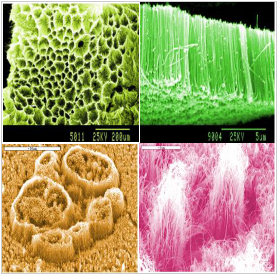 A variety of carbon-based nanomaterials, including nanotube array, nanospheres and graphene have been synthesized, and the following researches involve their large scale preparation, functionalization and its applications in polymer nanocomposites.
A variety of carbon-based nanomaterials, including nanotube array, nanospheres and graphene have been synthesized, and the following researches involve their large scale preparation, functionalization and its applications in polymer nanocomposites.
(2) Solar energy conversion
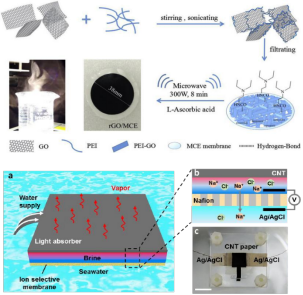 Novel nanostructural and functional carbon-rich materials and derivatives thereof have been synthesized, and the further modification can lead to impressive their performances in solar vapor generation, solar photo electricity conversion and solar cell. These solar energy conversion strategies are green, efficient and direct approach to utilize solar energy, and suitable for a wide range of practical applications in large-scale solar steam generation, sterilization of waste, seawater desalination, and generating power.
Novel nanostructural and functional carbon-rich materials and derivatives thereof have been synthesized, and the further modification can lead to impressive their performances in solar vapor generation, solar photo electricity conversion and solar cell. These solar energy conversion strategies are green, efficient and direct approach to utilize solar energy, and suitable for a wide range of practical applications in large-scale solar steam generation, sterilization of waste, seawater desalination, and generating power.
(3) Energy generation
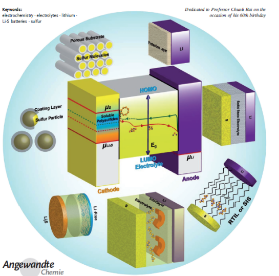 Energy generation and storage technologies are vital to the efficient utilization of sustainable renewable energy sources. Fuel cell, rechargeable lithium-ion batteries and the emerging Li-S batteries are considered as three of the most promising energy storage devices. We have develop new strategies to synthesize novel nanostructured and various functional nanomaterials. Our first aim is to generate materials leading to improved performances in electrochemical applications. The second aim is to do that sustainably.
Energy generation and storage technologies are vital to the efficient utilization of sustainable renewable energy sources. Fuel cell, rechargeable lithium-ion batteries and the emerging Li-S batteries are considered as three of the most promising energy storage devices. We have develop new strategies to synthesize novel nanostructured and various functional nanomaterials. Our first aim is to generate materials leading to improved performances in electrochemical applications. The second aim is to do that sustainably.
(4) Nano devices
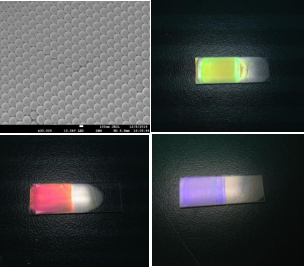 Photonic crystals (PC) are optical materials with periodic nanostructures having a photonic band gap. When light falls in the photonic band gap and cannot spread in the medium, the PCs will demonstrate structural color. In our group, photonic crystal film and microparticles, including closepacked or non-close-packed structure, were prepared, and their applications in displays and sensors were researched.
Photonic crystals (PC) are optical materials with periodic nanostructures having a photonic band gap. When light falls in the photonic band gap and cannot spread in the medium, the PCs will demonstrate structural color. In our group, photonic crystal film and microparticles, including closepacked or non-close-packed structure, were prepared, and their applications in displays and sensors were researched.
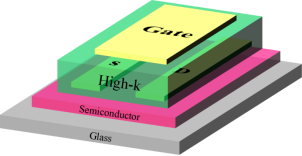 The organic field-effect transistors (OFET) is a field -effect transistor using an organic semiconductor in its channel. The emphasis of our research lies in the OFET materials preparation, the linked structure formation and the device physics mechanism. In addition, its wide-ranging applications, including displays, sensors, and other hybrid integration systems, were also developed.
The organic field-effect transistors (OFET) is a field -effect transistor using an organic semiconductor in its channel. The emphasis of our research lies in the OFET materials preparation, the linked structure formation and the device physics mechanism. In addition, its wide-ranging applications, including displays, sensors, and other hybrid integration systems, were also developed.
3. Group members
We are a collaborative, ambitious, multi-disciplinary research team working at the forefront of new energy & device. We value creativity, attention to detail, and the safe, ethical conduct of research.
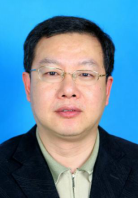 Xianbao Wang, Professor, Dr.
Xianbao Wang, Professor, Dr.
GROUP LEADER
Email: wxb@hubu.edu.cn ; wangxb68@aliyun.com.
Office: School of Materials Science and Engineering,
Hubei University, Wuhan 430036, China.
Phone: 027-88662132
Prof. Dr. Xianbao Wang was born in 1968. He received BS and MS in School of Materials Science and Engineering from Hubei University in 1991 and 1999, respectively, and PhD degree from Institute of Chemistry Chinese Academy of Sciences in 2002. He had engaged in the postdoctoral research in the Katholieke Universiteit Leuven (Belgium) during 2002 to 2004. He was made a professor in a field of Materials Science and Engineering, Hubei University in 2005, and he is currently the dean of School of Materials Science and Engineering. His current research activities involve in preparation and functionalization of carbon based nanomaterials, and its applications in polymer nanocomposites, solar photo-thermal conversion, Li-S cells, fuel cells, supercapacitors and environmental monitoring.
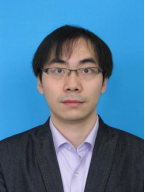 Tao Mei, Associate professor, Dr.
Tao Mei, Associate professor, Dr.
Email: meitao@hubu.edu.cn
Office: School of Materials Science and Engineering,
Hubei University, Wuhan 430036, China
Dr. Tao Mei received a PhD degree in inorganic chemistry at the University of Science and Technology of China in July 2013. He is currently a associate professor at School of Materials Science and Engineering, Hubei University and the director of Institute of Advanced Energy Materials. His research interests focus on the design and fabrication of lithium ion battery and supercapacitor electrode materials via various methods and improving their electrochemical performance. He published more than 40 papers in peer-reviewed Journals.
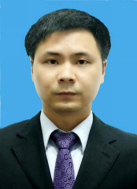 Jinhua Li, Associate professor, Dr.
Jinhua Li, Associate professor, Dr.
Email: jinhua_li@126.com; jinhua_li@hubu.edu.cn
Office: School of Materials Science and Engineering,
Hubei University, Wuhan 430036, China
Dr. Jinhua Li received the B.E. degree in Electronic Science and Technology in 2002 and the M.E. degree in Materials Science in 2008 from Hubei University in China. He received his Ph.D. degree at the Department of Applied Physics of the Hong Kong Polytechnic University in 2012 and then carried out postdoctoral research there. Since 2014, he has been an Associated Professor with the School of Materials Science and Engineering, Hubei University, Wuhan, China. His research interests include solar cells, device physics and sensing applications of organic thin film transistors
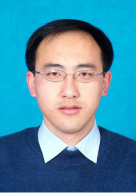 Jianying Wang, Associate professor, Dr.
Jianying Wang, Associate professor, Dr.
Email: wangjy_2002@163.com
Office: School of Materials Science and Engineering,
Hubei University, Wuhan 430036, China
Dr. Jianying Wang received BS and MS in Lanzhou University and Tianjin University in 2002 and 2007, respectively, and received his PhD in Changchun Institute of Applied Chemistry, Chinese Academy of Science, China, in 2010. He worked as a postdoc at Huazhong University of Science and Technology, China; and University of Maryland, College Park, USA, from 2011 to 2014. He is currently an associate professor at School of Materials Science and Engineering, Hubei University.
 Jingwen Qian, Dr.
Jingwen Qian, Dr.
Email: ichqjw123@163.com
Office: School of Materials Science and Engineering,
Hubei University, Wuhan 430036, China
Dr. Jingwen Qian receive BS in South West Jiao Tong University in 2012, and PhD degree in materials science and engineering at China University of Geosciences (Beijing) in July 2017. She is currently working at School of Materials Science and Engineering, Hubei University. Her research interests focus on the design and fabrication of nanostructures via various methods and their application in the generation, storage and transport of clean energy.

